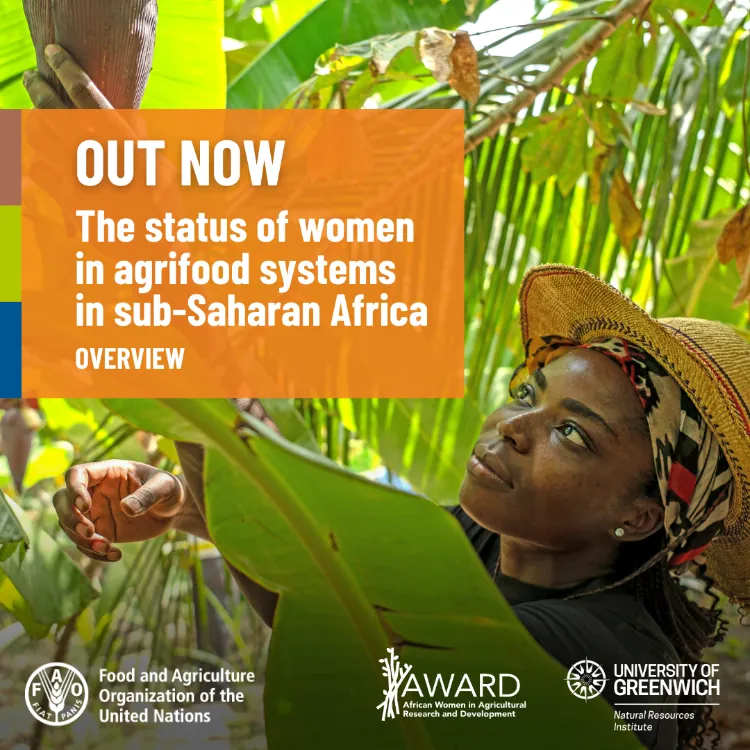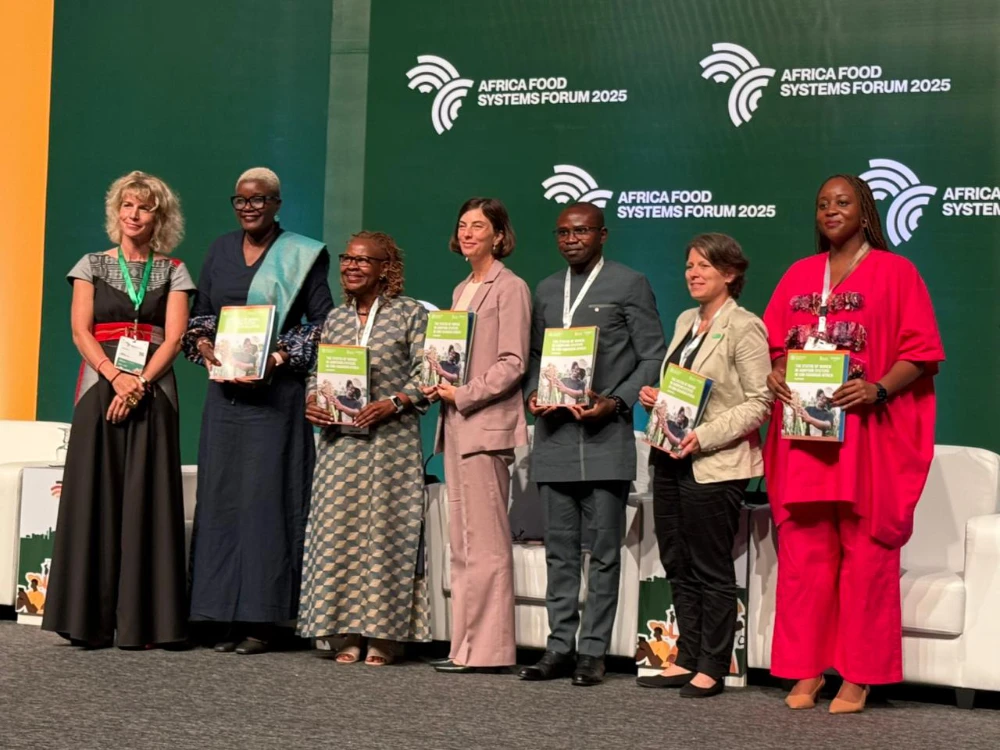
Women make up nearly half of sub-Saharan Africa’s agrifood workforce yet face pervasive gender inequalities and growing uncertainty with climate and environmental change, according to a new report by the Natural Resources Institute, FAO and AWARD.
Today, at the Africa Food Systems Forum 2025 in Dakar, Senegal, new findings were shared about the role of women in agrifood systems across sub-Saharan Africa. The data shows that 76 percent of employed women in the region work within agrifood systems, making up nearly half (49 percent) of the total workforce in this sector. Notably, women’s participation in off-farm activities, such as processing, packaging, distribution and consumption, has grown significantly, increasing from 21 percent in 2005 to 29 percent in 2022. Additionally, over 90 percent of employed women in the region work in informal settings, where their contributions often go unnoticed and undervalued, limiting their visibility and influence.
These insights come from the overview of the report The Status of Women in Agrifood Systems in Sub-Saharan Africa, jointly released by the Food and Agriculture Organization of the United Nations (FAO), the Natural Resources Institute at the University of Greenwich (NRI), and African Women in Agricultural Research and Development (AWARD). The full report is due out later this year.
The report emphasises that women in the region play diverse and vital roles in the culture, knowledge and social bonds associated with food within African agrifood systems and sustain sub-Saharan Africa’s agrifood systems through their work in farming, processing, trade, and unpaid care. However, as Dr Fiorella Picchioni, lead author of the chapter on women’s work in agrifood systems in sub-Saharan Africa, explains: ‘Their productive work is often informal, precarious, and poorly paid, while reproductive labour remains invisible.’
‘Agrifood systems across sub-Saharan Africa are powered by women’s informal, domestic and subsistence work. Investments and enabling policies are needed to create more formal wage-paying jobs for women, and social protection programmes must be expanded to safeguard women’s livelihoods,’ said Abebe Haile-Gabriel, FAO’s Assistant Director-General and Regional Representative for Africa.
In most of the 33 countries in the region with available data, men are more likely than women to own agricultural land or have secure land rights. Women also face systemic challenges in accessing essential natural resources like water and forests, which are critical for their families’ survival and economic stability.
Food insecurity has worsened significantly in the region over the past decade. In 2024, 64 percent of the population experienced moderate or severe food insecurity, with 11.2 million more women affected than men. Nearly 40 percent of women aged 15 to 49 are anaemic, and many face serious health risks in their agricultural work, alongside widespread gender-based violence.
Despite these challenges, there are signs of progress across the region. ‘There is positive change throughout sub-Saharan Africa, which is directly addressing the inequalities faced by diverse women in the region, such as collective action towards women’s land rights, addressing gender-based violence, and leadership in agroecological movements and natural resource governance. While there is a long way to go, these changes can improve women’s livelihoods and wellbeing, as well as ensure women’s priorities are more meaningfully represented in decision-making,’ said Dr Lora Forsythe, Associate Professor in Gender, Inequalities and Food Systems, who led the report’s core writing team.

Presenting the report in Dakar, AWARD Director Dr Susan Kaaria stressed the importance of gender-transformative strategies in addressing the root causes of inequality and enhancing women’s agency. ‘Achieving gender equality and empowering women in agrifood systems is both a moral imperative and an effective policy choice. It is key to social justice as well as unlocking inclusive growth, food security and climate resilience,’ she said.
The report argues that supporting women’s empowerment by creating environments where women can make and act on their choices, both individually and collectively, will strengthen social equity, food security, and climate adaptation. It also highlights the importance of ensuring women’s rights to land, water, and forests, alongside efforts to foster ecological flourishing, as crucial steps for a just transformation of agrifood systems. The authors further stress that supportive policies, targeted interventions, and strong international accountability across both public and private sectors are essential to recognise and sustain women’s contributions, making agrifood a core driver of equity, fairness, and dignified livelihoods.
The report was produced by lead authors Professor Akosua Darkwah (University of Ghana), Dr Losira Sanya (Makerere University), Dr Fiorella Picchioni (University of Bristol), and Dr Lora Forsythe and Dr June Po (Natural Resources Institute), with additional support and leadership from Professor Adrienne Martin.
The overview report is available here: https://openknowledge.fao.org/handle/20.500.14283/cd6631en

